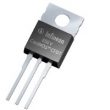

Sponsored News
Animal food traceability is most relevant when it comes to public health. Traceability has become increasingly important. However, there are still some problems with traditional management methods. For example, due to a long and complex supply chain, the risk of contamination or spoilage is higher. People cannot obtain product safety information, operator credit information and product circulation information. They can only identify the quality of goods through sight and touch, and it is difficult to identify fraud. (more…)
October 28, 2020
Posted by: IoT global network

Xidas IoT becomes the first to create a cost-effective solution for the Internet of Things (IoT) market’s major issue: battery life. The increasing benefit of wireless sensors in the industrial and automation world is being restricted by the pain of replacing their batteries. (more…)
Posted by: Anasia D'mello

C3.ai, Microsoft Corp., and Adobe Inc. today announced the launch of C3 AI CRM powered by Microsoft Dynamics 365. (more…)
October 27, 2020
Posted by: Anasia D'mello

At Microsoft Ignite, RealWear, Inc, a global provider of fully rugged hands-free head-mounted devices for industry, today announced the general availability of Microsoft Teams on RealWear. (more…)
October 22, 2020
Posted by: Anasia D'mello

Pipistrel has selected Honeywell’s Compact Fly-By-Wire system for the Nuuva V300 cargo unmanned aerial vehicle (UAV). It needs a modern, lightweight, highly capable system with a proven architecture for its autonomous cargo UAV. (more…)
Posted by: Anasia D'mello

(Sponsored News)
ZHOU LIU FU Jewelry, one of China’s famous jewelry retailers, has many retail chain stores in China. Due to the variety and lots of jewelry, manual stock-taking is inefficient and error-prone, which consumes a lot of time and labor costs. It is not possible to report the store’s operating status and inventory status for the first time, which has a negative impact on store management. And untimely allocation of goods affects the normal operation of the store.
In order to solve the above problems and strengthen the management of retail chain stores and improve the efficiency of retail store jewelry inventory, jewelry retailers decided to use Chainway R2 Bluetooth RFID readers based on UHF applications to realize the intelligent management of store jewelry inventory.
Through the application of Chainway R2, Workers can quickly read the electronic tag on the jewelry with this device. At the same time, the data can be updated to a database system to achieve an accurate inventory of jewelry, which is not only highly efficient, but also has a low error rate. Also, it can record all the input and output of the warehouses, and warehouse transfer in detail, contributing to the visibility of inventory management.
Besides, The information management system of jewelry will allow customers to accurately know all the information about the jewelry they are interested in. They only need to read the electronic label of the jewelry, and the related information will be presented on the display of the store. The one-click operation can bring an enhanced shopping experience for customers. At the same time, It helps enterprises accurately complete operations of inventory goods, which will greatly reduce operating costs and improve management efficiency.
October 20, 2020
Posted by: IoT global network

Today, more than half of all households across Africa do not have access to any form of energy. This means that more than 600 million people currently do not have electricity. (more…)
October 8, 2020
Posted by: Anasia D'mello

The UK suffered a spate of high profile tragedies on its rail network in the late ’90s and early 2000s. Fortunately, since then rail accidents have been mercifully absent from the news – indeed the UK has had over a decade of zero deaths on its railways, says Stuart Large, product line director, Fotech. (more…)
October 6, 2020
Posted by: Anasia D'mello

Amazon Web Services, Inc. (AWS), an Amazon.com company, has announced the general availability of Amazon Timestream. This is a new time series database for the Internet of Things (IoT) and operational applications that can scale to process trillions of time series events per day up to 1,000 times faster than relational databases, and at as low as 1/10th the cost. (more…)
October 1, 2020
Posted by: Anasia D'mello

For SMPS designs in industrial applications, recent technology trends include the need for high efficiency and power density as well as increased bus voltages. This triggers the need for power devices with 650 V breakdown voltage. (more…)
Posted by: Anasia D'mello